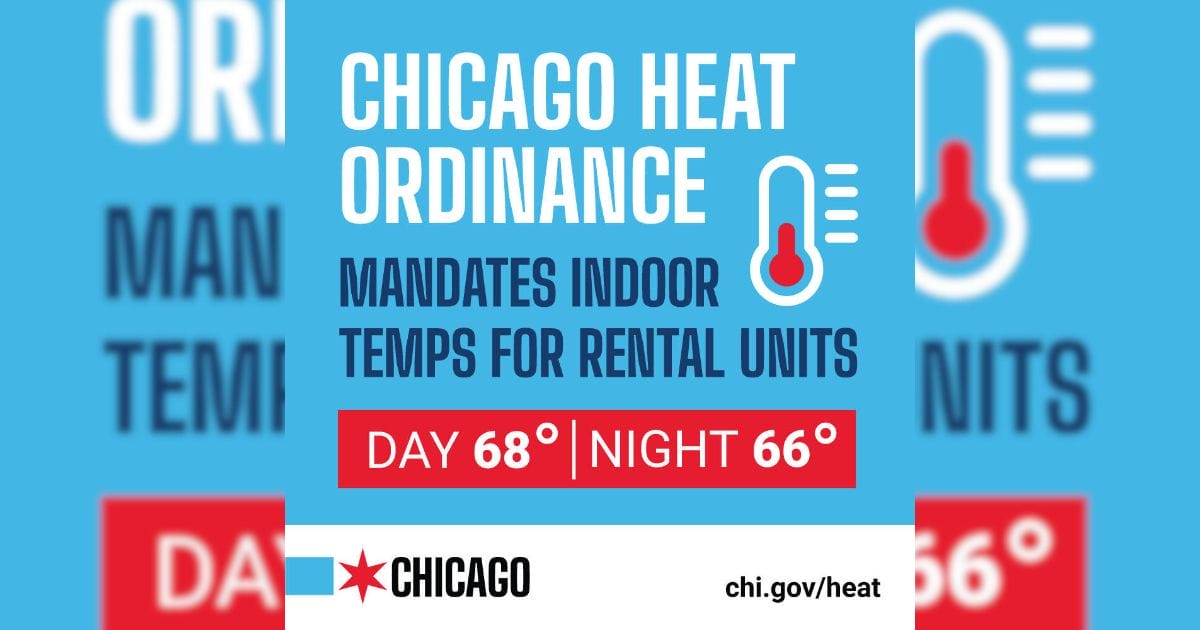As temperatures continue to drop ahead of the winter season, tenants should be aware of their rights under Chicago’s rent ordinance that requires landlords to provide heat.
Landlords and building owners who don’t provide heat for their tenants will pay fines of $500 to $1,000 per day, per violation, if they do not supply adequate heat or functioning heating equipment. According to the rent ordinance, regardless of the landlord’s explanation, they must follow the law by providing heat.
From September 15 through June 1, the temperature inside a rental residence is required to be at least 68 degrees from 8:30 a.m. to 10:30 p.m., and at least 66 degrees from 10:30 p.m. to 8:30 a.m.
According to the Department of Buildings, which enforces the Chicago Building Code’s heat ordinance, during cold weather months, landlords must supply heat to rental units or to any unit where occupants do not have individual control of the heat.
Renters who do not have heat on cold days should call the city’s 311 hotline or file a complaint on the CHI 311 website or mobile app. With thousands of calls to the 311 hotline, housing advocates say the best and effective way to file a complaint is through the mobile app, which documents the complaint and give tenants a ticket number to track the progress of their problem.
Once a complaint is filed, the Department of Buildings will visit and inspect the unit and take action against delinquent owners. Renters are protected from retaliation through the city’s Residential Landlord and Tenant Ordinance (RLTO).
The ordinance was passed in 1986, “to protect and promote the public health, safety and welfare of its citizens” and “to encourage the landlord and the tenant to maintain and improve the quality of housing” citywide.
The ordinance requires that a summary copy of the ordinance be given to prospective tenants by the landlord. The summary must be attached to each written lease agreement and lease renewal and must be given to the tenant when there is an oral rental agreement.
With more than 60 percent of Chicagoans living in rental housing, Renters’ Rights provides landlords and tenants with assistance in meeting their legal obligations and exercising their rights.
Renters’ Rights provides mediation for landlords and tenants to resolve disputes in an informal and non-adversarial manner.
The RLTO governs most residential rental agreements in Chicago. Housing advocates say knowing your rights and responsibilities is key to a good rental relationship.
They also say the tenant and the landlord should know each other’s expectations in the lease agreement. Whether you’re a tenant or landlord, there are laws that spell out your rights and responsibilities.
-
Erick Johnsonhttps://chicagocrusader.com/author/erick-johnson/
-
Erick Johnsonhttps://chicagocrusader.com/author/erick-johnson/
-
Erick Johnsonhttps://chicagocrusader.com/author/erick-johnson/
-
Erick Johnsonhttps://chicagocrusader.com/author/erick-johnson/






